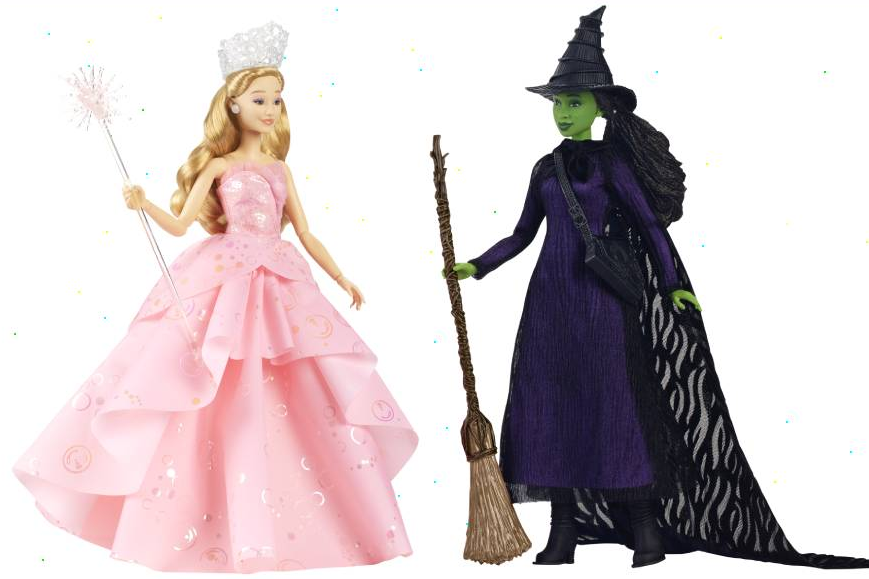Mattel is being sued for mistakenly printing the URL for a pornographic site on the packaging for special-edition “Wicked” dolls.
According to court documents, a South Carolina resident is launching a class action lawsuit after purchasing the toy for her young daughter, who visited the X-rated website that had “nothing to do with the ‘Wicked’ doll.” The toy company mistakenly listed a similarly-titled website for the adult-entertainment site Wicked Pictures, rather than the official page for the Universal Pictures film, starring Cynthia Erivo and Ariana Grande. The plaintiff alleges that Mattel didn’t offer a refund and believes she and her child suffered “emotional distress” from the misprint.
“These scenes were hardcore, full on nude pornographic images depicting actual intercourse,” the lawsuit reads. “Plaintiff’s minor daughter immediately showed her mother the photographs and both were horrified by what they saw. If plaintiff had been aware of such an inappropriate defect in the product, she would not have purchased it.”
Popular on Variety Mattel, the manufacturer of Barbie, pulled the toy from shelves at retailers including Target, Amazon and Kohl’s. It also issued a statement that it was “aware of a misprint on the packaging of the Mattel ‘Wicked’ collection dolls, primarily sold in the United States, which intended to direct consumers to the official WickedMovie.com landing page.” The company advised consumers who already have the dolls to “discard the product packaging or obscure the link.”
Neither Universal nor Mattel responded to request for comment.
After “Wicked” opened in theaters, Universal’s chief marketing officer Michael Moses told Variety he didn’t think the snafu was harmful to ticket sales for the film. The movie musical collected a dazzling $112 million in its debut and has since grossed $263 million domestically and $360 million globally.
“I don’t think that all press is good press. I always categorize incidents between what might actually damage the desire to see the movie and what might not,” he said. “I think that was an example of one that’s an anecdote more than a threat.”

 Italian
Italian







